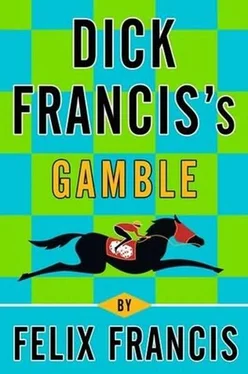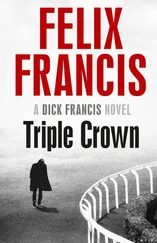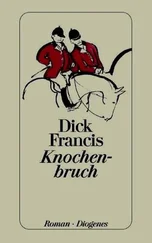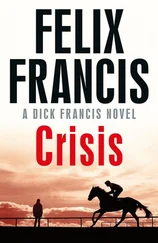But that was not all, not by a long way.
The four remaining e-mails were about funding for the homes to be constructed close to the factory to house the workers. This was to come from a different source, the EU Social Housing Fund, and required no similar two-for-one arrangement. It appeared that the new factory alone was sufficient to trigger the one hundred percent grant for the housing, which was in the region of eighty million euros.
If, as Jolyon Roberts’s nephew had implied, no houses and no factory had been built in Bulgaria, then someone somewhere had likely pocketed nearly a hundred million euros, most of it public money.
I looked closely at the e-mail addresses. The e-mails had been sent by uri_joram@ec.europa.eu to dimitar.petrov@bsnet.co.bg, with Gregory Black being copied in. The ec.europa.eu domain indicated that Uri Joram worked in the offices of the European Commission, probably in Brussels, and I could deduce that Mr. Petrov must be in Bulgaria from the.bg extension.
It wasn’t a huge help.
I also looked at the telephone number I had copied from the Roberts Family Trust file on Gregory’s computer. I wondered if I should call it. But what good would it do? I couldn’t speak Bulgarian, and even if whoever answered could understand English, they were most unlikely to give me any information that would answer my questions.
What should I do?
It may very well have been a simple mistake made by Mr. Roberts’s nephew. He might have gone to the wrong place in Bulgaria, with the factory and the houses existing elsewhere. Surely there would have been checks made by the European Union officials running the EU Social Housing Fund to confirm that their eighty million euros had been spent properly on bricks and mortar.
I decided that, having been asked by Jolyon Roberts to look into it, I couldn’t just do nothing, so I sent a short e-mail to Dimitar Petrov, asking him to send me the names and addresses of the directors of the Balscott Lighting Factory if he had them.
By the time I realized that sending the e-mail was possibly not such a good idea if Mr. Petrov himself was one of those involved in the potential hundred-million-euro fraud, it was well on its way and there was no bringing it back.
It couldn’t do any harm, could it?
I closed my computer and looked at the clock. It was a quarter to five, so I made myself a cup of tea.
I couldn’t help but notice that Claudia had left her latest mobile phone bill lying on the worktop right next to the kettle. And I also couldn’t resist the temptation to look at it.
I suppose I was looking for numbers I didn’t recognize that she had called regularly. There was one, with calls almost every day for the past two weeks, and often more than once a day.
Now what did I do? Did I call the number and demand to know who had been talking so often to my girl? No, of course I didn’t. But I copied the number into my mobile phone just in case I changed my mind.
Claudia arrived home at five-thirty, and I resisted the temptation to ask her where she had been and why her phone had been switched off.
“Why aren’t you at the office?” she asked.
“Patrick sent me home,” I said. “Gregory seems to think I’ve brought the company into disrepute. Patrick thinks it would be best for me to have some time off, to stay away from the office, just to let the dust settle.”
“But that’s ridiculous,” she said. “The police let you go. You have a cast-iron alibi.”
“I know that, and you know that,” I replied crossly. “But you know what most people are like, they believe what they read.”
“Those bloody newspapers,” she said with feeling. “They shouldn’t be allowed to give out people’s names before they’re charged.”
Or even convicted, I thought. But I also knew the police were secretly quite keen for the names of those accused to be released early so that potential witnesses would come forward.
“Patrick says it will all blow over in a few days,” I said. “He thinks people will forget.”
“I hope he’s right,” she said.
So did I.
“Did you get your dress?” I asked.
“What dress?” she said.
“Come on, darling,” I said, slightly irritated. “You know. The one you were going to buy for the opening night on Wednesday.”
“Oh, that,” she said, clearly distracted. “Perhaps I’ll go tomorrow. Something came up this afternoon.”
I didn’t like to think what, so I didn’t ask.
“How long did Patrick say you had to stay away from the office?” Claudia asked into the silence.
“Maybe a week,” I said, wondering if she was asking for reasons other than worries over my reputation and career. “Perhaps I’ll go to the races instead.”
“Great idea,” she said. “Give your mind a rest from all those figures.”
Perhaps it was time to start looking at figures of a different kind.
On Saturday afternoon I put on my thick skin and went to Sandown Park Races on the train from Waterloo.
“Bloody hell,” said Jan Setter. “I didn’t expect to see you here. I thought you’d been sent to the Tower.”
“Not quite,” I said.
I was standing on the grass close to the parade ring, near the statue of the horse Special Cargo.
“Did you do it?” Jan asked in all seriousness.
“No, of course I didn’t,” I said. “The police wouldn’t have let me go if they still thought I’d tried to kill Billy. I have an alibi.”
“Who did do it, then?”
“I don’t know,” I said. “But it wasn’t me.”
“Blimey,” she said. “Then there’s still a would-be murderer out there on the loose.”
“Lots of them,” I said. “Not just Billy’s but Herb Kovak’s too.”
“Who’s Herb Kovak?” she asked.
“Chap who was shot at Aintree last Saturday,” I said. “He was a colleague of mine at work.”
“Did you kill him then?”
“Jan,” I said forcefully, “I didn’t kill anyone, or try to. OK?”
“Then why were you arrested?”
I sighed. People, even good friends, really did believe what they read in the papers. “Someone told the police that Billy had shouted at me at Cheltenham, demanding to know why I was going to murder him. They put two and two together and made five. That’s all. They got it wrong.”
“So why did Billy shout at you?”
“It was to do with his investments,” I said.
Jan raised a questioning eyebrow.
“It’s confidential,” I said. “You wouldn’t want me telling everyone about your investments, now would you?”
“No,” she agreed. “But then I haven’t been deliberately knocked off my bike.”
“That’s a fair point, but confidentiality rules still apply,” I said. “Severely injured or not, he’s still my client.”
Mind you, I thought, there was a limit to confidentiality.
The Wiltshire Police had called me on Friday evening to make an appointment, and I had spent time with two of their number earlier, going over in minute detail all the events of Tuesday and Wednesday at Cheltenham Races, with particular reference to Billy Searle’s investments.
“Was it true that you owe Mr. Searle over a hundred thousand pounds?” one of them had asked me as his opening shot.
“No,” I’d replied calmly. “Not personally. I’m a financial adviser and Billy Searle is a client of mine, which means I manage the investment of his money. In total, he has about a hundred and fifty thousand invested through me, and he told me on Tuesday that he urgently wanted all his money out in cash. He became very distressed and angry when I told him it would take a few days to realize the cash through the sale of his stocks and shares.”
Читать дальше












